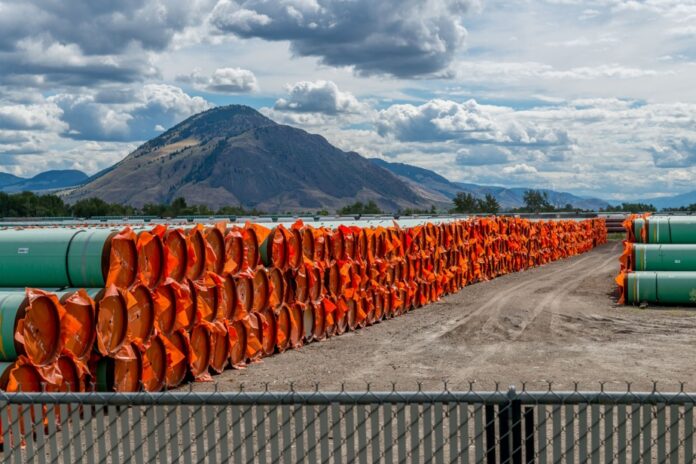(Calgary) An Indigenous group is still determined to own the Trans Mountain pipeline, even as cost overruns for the pipeline expansion project keep mounting.
“We’re not going to leave just because it’s 30.9 billion. We are entering the early stages of negotiations,” said the executive director of Project Reconciliation, a Calgary-based group working to facilitate the purchase of a significant stake in the pipeline for the 129 First Nations located along the route.
“Yes, there are a few other interested parties, but I think the federal government has recognized our readiness. »
The Trans Mountain Pipeline — Canada’s only pipeline system carrying oil from Alberta to the West Coast — was bought by the federal government for $4.5 billion in 2018, when former owner Kinder Morgan Canada threatened to abandon planned pipeline expansion in the face of environmental opposition.
Construction of the expansion is still ongoing and is expected to be completed later this year.
However, the capital costs of the project have steadily skyrocketed. Last week, Trans Mountain Corporation announced that its estimated price for the project had risen again, this time to $30.9 billion. This is an increase of around 44% on the previous estimate, which a year ago projected costs of 21.4 billion. An earlier estimate called for spending $12.6 billion on the project.
The federal government has indicated that it does not want to be the long-term owner of the pipeline and has said it is open to the idea of Indigenous ownership.
But because of existing contractual arrangements with oil shippers, only 20% to 25% of the project’s rising capital costs can be passed on to the oil companies in the form of increased tolls — the amounts the oil companies pay to ship their product on a pipeline, which allows the pipeline company to make money.
A report by the Parliamentary Budget Officer last June found that the federal government stood to lose money from its investment in the pipeline and suggested that if the project had been canceled at that time, the government should have written off more than 14 billion in assets.
Mr. Mason did not say what his group is willing to offer for a stake in the pipeline, but he did say the ultimate sale price would only be what a buyer was willing to pay, and would therefore reflect the expected return on investment.
“It’s a market value. It doesn’t matter (who the buyer is), he will only pay the commercial value and what the duties will support,” he argued.















